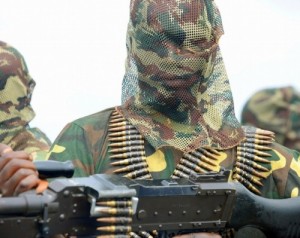 Yesterday’s bombing of the UN compound in Abuja, Nigeria by the radical-Islamist sect Boko Haram is finally setting off alarm bells throughout the Nigerian Government and the global anti-terrorism establishment. And well it should.
Yesterday’s bombing of the UN compound in Abuja, Nigeria by the radical-Islamist sect Boko Haram is finally setting off alarm bells throughout the Nigerian Government and the global anti-terrorism establishment. And well it should.
Boko Haram– the nickname for the group which is largely composed of disaffected, unemployed youth and university students from the predominantly Muslim northern states of Nigeria, means “Western Education is a Sin.” Sometimes also called the “Taliban”, but with no connection to the Afghan group bearing the same name, Boko Haram’s belief system is a mixture of selective readings of Islamic scripture as well as some home-grown nonsense which their founder, Mohammed Yusuf, propounded in an interview with the BBC just before being killed by Nigerian forces in 2009.
Like rain. We believe it is a creation of God rather than evaporation caused by the sun that condenses and becomes rain. – Mohammed Yusuf
There are serious questions to be asked as to why it has taken the Nigerian security establishment such a long time to crack down on this group, whose attack on the UN shows a growing sophistication and suggests outside assistance. As far back as 2009, five years after the group’s founding, dozens of Nigerian Muslim leaders were calling for a crackdown on Boko Haram, whose brazen antics have killed thousands of people and destroyed millions in public property.
In June of this year, the chief of the Nigerian national police visited the town of Maidiguir in northern Nigerian and vowed to crack down on Boko Haram. Days later the group responded by bombing the police headquarters in the nation’s capital, Abuja, killing six.
It would be a mistake to see Boko Haram as simply an extension of Al-Quaida’s global jihad. Although there are certainly reasons to suspect that Al-Quaida has built a support pipeline to Nigeria across the Sahel, the objectives of Boko Haram are predominantly local and firmly rooted in the decades long struggle by radicals to divide the Nigerian state in half and impose Islamic law on the North.
There have been suggestions that a response has been slow in coming because several members of Boko Haram come from prominent political families in the North. The latest attack will likely bring a severe crackdown by the Nigerian security forces, if only to save face in the wake of years of warnings.
The problem is that brutal crackdowns usually fuel aggressive recruiting drives and terrorists become heroes overnight in the eyes of disaffected youth, of whom there are millions throughout the region.